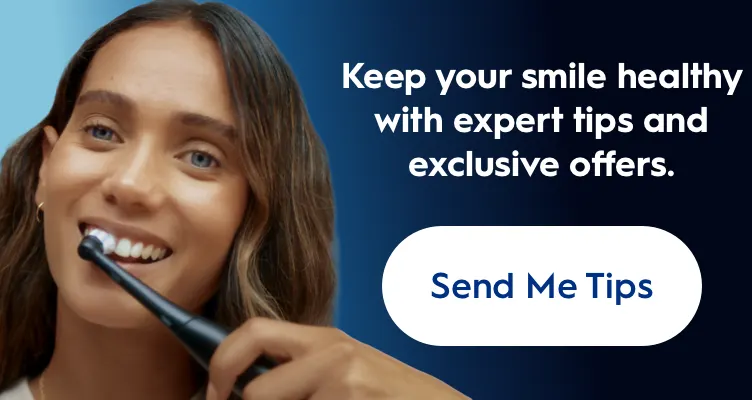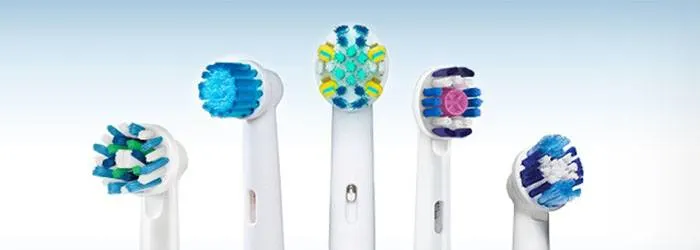
You already know that brushing your teeth every day for the dentist-recommended two minutes can help keep your teeth and gums healthy —but how many times a day should you brush your teeth? Find out just how often you really should be brushing your teeth and why.
How Often Should You Brush Your Teeth
First and foremost, dentists recommend replacing brush heads every 3 months because once they are worn out they don’t deliver its full cleaning efficacy. It’s well known that you should be brushing for the dentist-recommended two minutes twice a day. But did you know that brushing not only helps remove plaque but also polishes away surface stains and keeps your gum line clean? When you brush two or more times a day after meals, you’re giving your teeth and gums the reinforcements they need to stay healthy.
Benefits of Brushing Teeth 2+ Times a Day
Brushing your teeth and flossing daily is important for your hygiene routine. Here are the top reasons why you should brush at least two times a day after meals:
More Plaque Removal: As you go about your day, plaque can accumulate along with your teeth and gums. Brushing three times a day can help remove more plaque, helping keep your teeth clean and bright. Try brushing with an Oral-B electric toothbrush like the Oral-B iO9 for 100% more plaque removal than a regular manual toothbrush.
Tartar Prevention: If plaque is not regularly brushed away, it can harden into tartar—a hard, darkened substance that can only be removed by a dental professional. Tartar stains teeth and can lead to tooth decay.
Gum Health: Plaque bacteria can affect your gums. To help keep your gum line in good condition, pair standard floss with an irrigator like the Aquacare Water Flosser, featuring Oxyjet Technology for invigorating gum care.
Fresh Breath: Leftover food particles, debris, and plaque can all leave you with less-than-pleasant breath. Brush your tongue to further promote fresh breath and remove additional plaque that may reside there.
Whiter Teeth: Nothing says healthy and confident like a bright, beaming smile. As you eat and drink, pigments can get absorbed into your tooth’s enamel, creating the discoloration effect known as staining. When you brush at least two times a day, you’re removing more of those pigments before they have a chance to get absorbed while gently polishing away surface stains at the same time.
Strong Teeth: Brushing two or more times a day can help protect your enamel, the outermost layer of the tooth. Consider brushing with a remineralizing toothpaste-like Oral-B Densify, its unique formula actively rebuilds tooth density to extend the life of teeth.
Most importantly, dentists recommend replacing brush heads every 3 months because once they are worn out they don’t deliver it's full cleaning efficacy.
A complete and consistent oral hygiene routine can help keep your mouth healthy. Pair brushing two times a day with flossing at least once a day and see a dental professional at least twice a year for professional cleanings and checkups to help keep your oral health in check.
Sources:
https://www.ada.org/~/media/ADA/Publications/Files/ADA_PatientSmart_Brushing.pdf?la=en
https://www.dentalplans.com/dental-information/dental-concerns/bacteria-in-your-mouth
https://emedicine.medscape.com/article/1081424-overview
https://www.mayoclinic.org/healthy-lifestyle/adult-health/in-depth/dental/art-20047475
https://www.mouthhealthy.org/en/az-topics/b/brushing-your-teeth
Related Articles
Sign Up
for expert advice and exclusive offers





